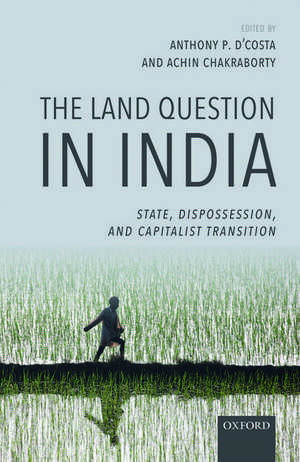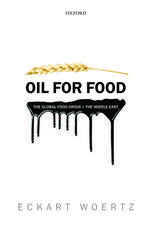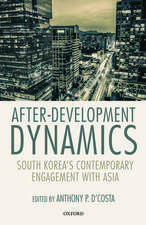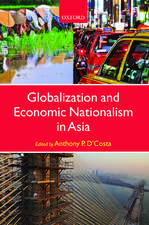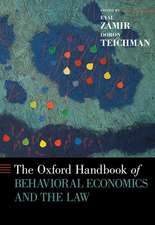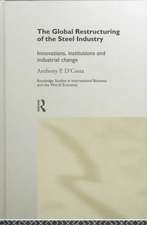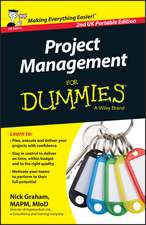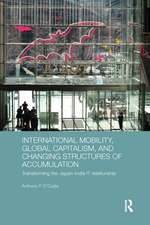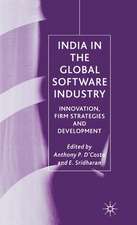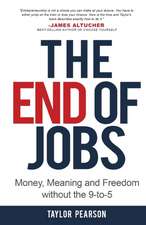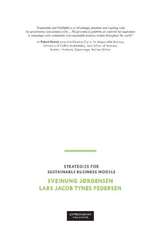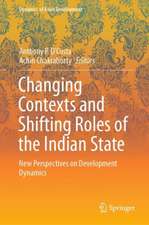The Land Question in India: State, Dispossession, and Capitalist Transition
Editat de Anthony P. D'Costa, Achin Chakrabortyen Limba Engleză Hardback – 13 apr 2017
Preț: 630.19 lei
Preț vechi: 902.45 lei
-30% Nou
Puncte Express: 945
Preț estimativ în valută:
120.62€ • 131.07$ • 101.39£
120.62€ • 131.07$ • 101.39£
Carte tipărită la comandă
Livrare economică 09-15 aprilie
Preluare comenzi: 021 569.72.76
Specificații
ISBN-13: 9780198792444
ISBN-10: 0198792441
Pagini: 358
Ilustrații: 4 Figures and 36 Tables
Dimensiuni: 180 x 241 x 28 mm
Greutate: 0.66 kg
Editura: OUP OXFORD
Colecția OUP Oxford
Locul publicării:Oxford, United Kingdom
ISBN-10: 0198792441
Pagini: 358
Ilustrații: 4 Figures and 36 Tables
Dimensiuni: 180 x 241 x 28 mm
Greutate: 0.66 kg
Editura: OUP OXFORD
Colecția OUP Oxford
Locul publicării:Oxford, United Kingdom
Recenzii
This book offers a rich fare for all students of social change not only in India but also for the majority of developing countries in the world. It provides theoretical perspectives on Marx's idea of primary accumulation, which is another name for acquisition by dispossessionwhich is an ongoing process. The authors provide theoretical insights into why in most developing countries, including India, this process does not lead to a transition to a dynamic capitalist development. All the chapters are based on hard empirical data on the means of coercion, including legal sleights of hand, used by the state in favour of capital.
The distribution of landownership, tenancy arrangements, and the marketable surplus of agricultural products have long been considered key elements in understanding the trajectory of development in low-income countries. This view is challenged, however, in this important new book. The contributors argue that land is central to economic and political change and the distribution of income and wealth in India, but it is no longer central to agricultural development. The book thus raises important issues about structural change and economic transition in India. It deserves to be widely read.
Collectively, the authors of these diverse case studies provide thoughtful perspectives, incisive insights and empirical analyses of perhaps the most vital single dimension of development processes and policies in the contemporary Indian neo-liberal accumulation regime: control over land. The studies convincingly triangulate the modus operandi of the logic and forms of dispossession and predation by capital, rightly emphasising the crucial catalyzing framework provided by instrumental legal and political interventions by the state acting as a de facto proxy for capital at various levels of the economy and polity. The editors are to be thanked for bringing together this significant intellectual intervention which will be welcomed both by the specialist researcher as well as the engaged lay reader.
The distribution of landownership, tenancy arrangements, and the marketable surplus of agricultural products have long been considered key elements in understanding the trajectory of development in low-income countries. This view is challenged, however, in this important new book. The contributors argue that land is central to economic and political change and the distribution of income and wealth in India, but it is no longer central to agricultural development. The book thus raises important issues about structural change and economic transition in India. It deserves to be widely read.
Collectively, the authors of these diverse case studies provide thoughtful perspectives, incisive insights and empirical analyses of perhaps the most vital single dimension of development processes and policies in the contemporary Indian neo-liberal accumulation regime: control over land. The studies convincingly triangulate the modus operandi of the logic and forms of dispossession and predation by capital, rightly emphasising the crucial catalyzing framework provided by instrumental legal and political interventions by the state acting as a de facto proxy for capital at various levels of the economy and polity. The editors are to be thanked for bringing together this significant intellectual intervention which will be welcomed both by the specialist researcher as well as the engaged lay reader.
Notă biografică
Anthony P. D'Costa is Chair and Professor of Contemporary Indian Studies at the University of Melbourne. He has published on the political economy of development, global capitalism, inequality, and industrial restructuring using the steel, auto, and IT sectors. His books include International Mobility, Global Capitalism, and Changing Structures of Accumulation: Transforming the Japan-India IT Relationship (2016), Transformation and Development: The Political Economy of Transition in India and China (2012); Globalization and Economic Nationalism in Asia (2012); and After-Development Dynamics: South Korea's Contemporary Engagement with Asia (2015), all published by Oxford University Press. He has held fellowships from Fulbright-Hays, American Institute of Indian Studies, Korea Foundation, Japan Foundation, and POSCO at the East West Center.Achin Chakraborty is a Professor of Economics and Director of the Institute of Development Studies Kolkata (IDSK), engaged in teaching, research, and research guidance in the areas of welfare economics, development economics, and methodology. Before joining IDSK as a Professor in 2004 he had been an Associate Professor at the Centre for Development Studies in Thiruvananthapuram, India. He received his PhD in Economics from the University of California at Riverside. He has published widely in peer-reviewed journals including Economic Theory, Social Indicators Research, Journal of Quantitative Economics, Environment and Development Economics, Indian Economic Review, and Economic and Political Weekly.
